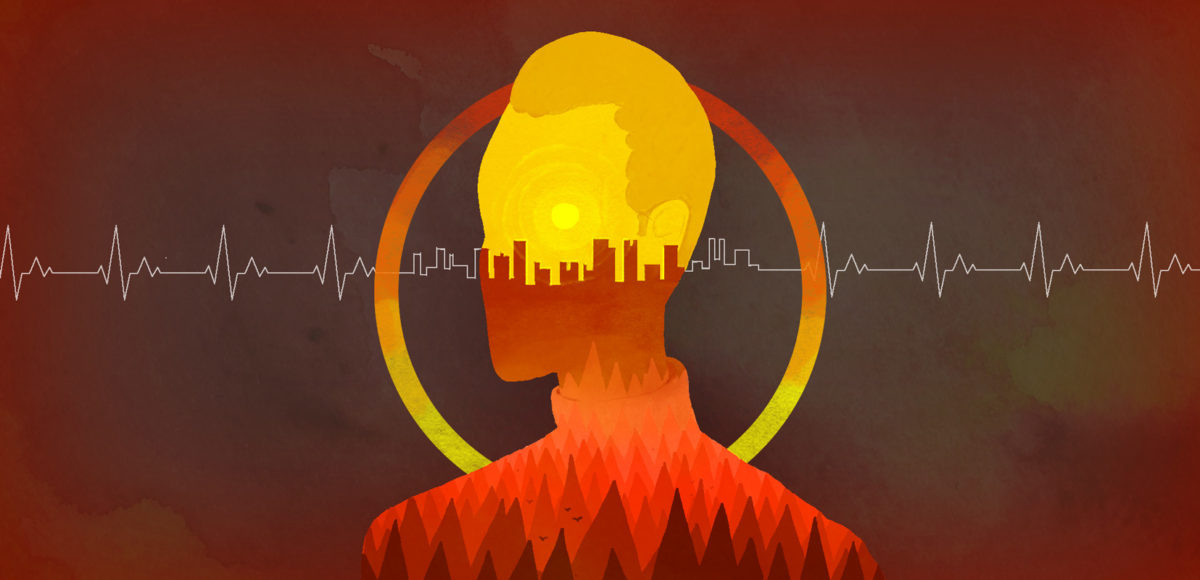By Alexander Görlach
In upcoming times, we will see three trends from last year merge into a megatrend that will not only define the presidential election in the USA but also send waves across the Atlantic to Europe and across the Pacific to Asia.
There is, first of all, the great struggle against inequality that flared up this past year at many points around the globe nearly simultaneously. The protests – in Ecuador, Iran, Lebanon, France, and Hong Kong – are breaking out where people feel exploited by the system, whether from rising gas prices or a tax for using social media. When a Tunisian street vendor doused himself with gasoline and set himself on fire after police confiscated his produce cart in 2010, it sparked the Arab Spring. The economic discontent that has become palpable in recent months in many parts of the world will likewise leave political tremors in its wake. These developments are leading economists, philosophers, and politicians to think about what a better and fairer form of capitalism might look like.
Hanging over these deliberations are portents of the other two trends: increasing automation and everything that marches under the banner of machine learning and artificial intelligence, and environmental protection and the fight against climate change. Industrialized western nations have witnessed two decades of rising economic output thanks to greater efficiency and automation, even as household incomes have stagnated. This means that people are able to afford less and less, even though the gross domestic product is increasing. On top of this, a policy of minimal interest rates eats away at people’s savings even as social safety nets are collapsing, especially pensions. In Germany, for example, the pension system has only been kept alive by injecting 100 billion Euros from tax revenues.
There have certainly been episodes in the past of jobs being destroyed and new ones created by automation and new technologies. That might happen this time, too. But the societies of the past also had the space of a generation in which to adapt and restructure their schools, training programs, and universities to the changes. Today the crucial question is if this time we’ll again be granted a quarter-century to confront the ongoing changes constructively.
Industrialized western nations have witnessed two decades of rising economic output thanks to greater efficiency and automation, even as household incomes have stagnated.
The less prosperous among us are already feeling marginalized. It is correct on the merits to take new paths when it comes to transportation and mobility. But people living outside of cities – whether because housing has become prohibitively expensive there, or because they have chosen a rural life – need cars to drive to work and to deal with all the other aspects of their lives. It is not without good reason that gasoline price hikes are driving protesters into the streets everywhere from France to Iran. For several years now, the majority of people have been city dwellers. Nevertheless, the idea that the problem will therefore take care of itself must be met with caution.
Both the Brexit referendum and the election of Donald Trump were characterized by precisely this battle line running between the city and the countryside. What unites the voters who favored Trump in the USA and Brexit in Great Britain is that they both live in areas with low population densities: urban versus rural, “anywheres” versus “somewheres.” Different worlds, leading to different values. This polarization isn’t good for any society, as can be seen in the volatile mood in Great Britain and the USA. Residents of rural areas may perhaps persist in denying climate change, while city dwellers flock to “Fridays for Future” demonstrations by the thousands. It is after all the predatory exploitation of nature that in no small way makes clear why an economy based on growth (which always has to do with the plundering of resources, which today nature can no longer provide) as its sole key indicator cannot be our model for the future. This insight has dawned on an increasing number of people over the last several years, but what it means in concrete terms, both politically and economically, and how it will be implemented in practice and how this insight will change our lives – debate about all that is just beginning.
It is after all the predatory exploitation of nature that in no small way makes clear why an economy based on growth (which always has to do with the plundering of resources, which today nature can no longer provide) as its sole key indicator cannot be our model for the future.
Under discussion is nothing less than the future of the social contract when these three trends – fair capitalism, new technologies, and climate protection – merge, as is now happening in the USA. The epicenters of this new way of thinking are Silicon Valley and, in closer proximity to Europe, New York. A key indicator for this can be found in the EU’s General Data Protection Regulation, fervently hated by many start-ups in Europe, but celebrated – who would have thought? – in Silicon Valley in the USA as a new way to balance the interests of consumers and citizens fairly. New York is a bridgehead between the two continents, a place where European talk of values and responsibility meets up with American talk of technology and capitalism on a terrain that is hospitable to both. Silicon Valley has matured, perhaps also because many of its central players have in the meantime grown so wealthy that they have now given themselves over to contemplation and wish to leave behind as their legacy a world that is still inhabitable.
What will this new supertrend be called? The search for a name should aim high, for what is at stake is nothing less than a universal formula for our mutual coexistence. At the center of this trend is the rooted human being who understands himself not as a merely economic or rational entity, but who instead creates a new paradigm that embeds him in the relationships that surround him, from his nearest neighbor to far-flung fellow humans who he will never meet, but whose lives will nevertheless be affected by his (consumption) choices. This grounded human being must come to see himself in relation to a natural world that he has depleted. His survival will depend on whether or not he succeeds.

 | Technology, AI and ethics.
| Technology, AI and ethics.

